
Culture, talent and inclusion (CTI) are business imperatives for investment management firms. Culture, talent and inclusion have a real impact on a company’s long-term reputation and sustainability.
It is the underlying culture that influences the way people think, act, and make decisions, which in turn impacts the inclusivity of an organisation and its talent more widely. Successful businesses create an environment where people want to work, where they feel challenged, able to use their talents, and are valued.
We want to create an equitable, diverse and inclusive UK investment industry at all levels. The Investment Association's (IA) CTI workstream captures initiatives that seek to support member firms across the whole employee lifecycle, from entry level talent to senior and c-suite roles. Importantly, this is all underpinned by equity, diversity and inclusion (EDI) considerations.
IA members can access the member-only Culture, Talent and Inclusion webpage, which acts as a resource platform for CTI related resources and policies.
The Investment Association’s CTI initiatives and resources
Equity, Diversity and Inclusion Data Survey
The Investment Association in collaboration with the Thinking Ahead Institute have launched the inaugural Equity, Diversity and Inclusion Data Survey report. This report, for the first time, provides a more detailed overview of the demographic makeup of the UK investment management industry as well as information on the breadth of initiatives, processes and policies being implemented by member firms to promote inclusive workplaces and to attract and retain diverse talent.
Data was collected from 52 UK investment and fund management firms who collectively represent 75% of total UK assets under management and employ 78% of the approximate 46,200 people directly employed by the investment management industry in the UK. Interviews were also conducted with senior personnel from IA member firms. The report summarises the findings and serves as a central resource for best practices
The report is structured in four chapters covering:
- Diversity data collection
- Industry demographics
- Recruitment and progression
- Culture and accountability
As investment managers ramp up efforts to promote inclusive work environments and to attract and retain a diverse workforce, the FCA is also calling on firms to collect more robust data to demonstrate progress on EDI. It is well documented that effective EDI strategies rely on a sound data-driven approach. The IA believes that it is critical to provide an evidence-based understanding of the EDI landscape to better represent the customers we serve and to future-proof our industry.
An aggregated set of data allows investment management firms to benchmark their journey against the wider industry whilst also gaining a better understanding of how they can drive forward meaningful change.
We hope you find this evidence-based understanding of the EDI landscape in the UK investment management industry a useful means to assist in accomplishing more diversity and inclusion within the sector.
The Equity, Diversity and Inclusion Data Survey report can be accessed here.
Culture and Inclusion Conference
The IA are holding their annual Culture and Inclusion Conference on 16 November 2023. Registrations are now open through our Events page.
Black Leaders Programme
Mentoring and reverse mentoring for change
The Investment Association (IA) and #TalkAboutBlack, part of the Diversity Project, have launched the annual Black Leaders Programme, a mentoring and reverse mentoring programme for senior Black professionals in investment management.
Acknowledging the barriers to advancement that Black professionals face, this mentoring programme will aid in establishing a pipeline for underrepresented talent to leadership roles. Senior Black professionals with 10 or more years’ industry experience are paired with C-suite mentors from different investment management companies.
The programme helps mentees hone their executive leadership skills whilst equipping them with the tools and insights required to boost their careers and drive transformation within their organisations. It also provides reverse mentoring to current executive leaders by allowing them to hear and act upon insight into the lived experiences of Black people in the industry.
More information can be found here.
Investing in Culture Blog
The IA’s Investing in Culture blog provides insights into a range of culture, talent, and inclusion topics, with knowledgeable analysis on the latest industry news and developments.
Investment20/20
Investment20/20, the IA’s talent solution, drives a forward thinking, responsible and inclusive investment industry where every firm attracts, develops and retains talented people from all backgrounds. Investment20/20 is focused on creating a more diverse and inclusive investment industry. It is driven to ensure: every individual has the capability to succeed and thrive; aspiring professionals can learn, grow and create value for the firms that seek to attract and retain them; and that workforces are truly reflective of the investors, communities and people we serve. More information can be found on Investment20/20 through their website here.
Wider CTI work
- Working with the Hampton-Alexander Review – to improve gender balance in FTSE 350 leadership
- Change the Race Ratio - The IA is a founding partner of Change the Race Ratio, a business led initiative to increase racial and ethnic participation in British businesses and help reach the Parker Review targets
- Institutional Voting Information Service (IVIS) – part of the IA, IVIS reports on diversity alongside all other fundamental corporate governance matters
External initiatives we’re encouraging the industry to support:
- Women in Finance Charter – this commits firms to helping women into senior roles by setting targets and reporting on progress.
- Diversity Project – aims to achieve equality of opportunity across the investment and savings industry and bring a more inclusive culture sooner
We voluntarily disclose our own gender pay gap figures, as we think greater transparency is essential to achieve change and increase gender diversity. We also collect anonymous data on our employees’ ethnicity through our annual Employee Diversity Survey.
Member area
Members can visit the following pages to find out more about the IA's work on culture, talent and inclusion:
More information on the IA’s CTI initiatives is set out in our publications:
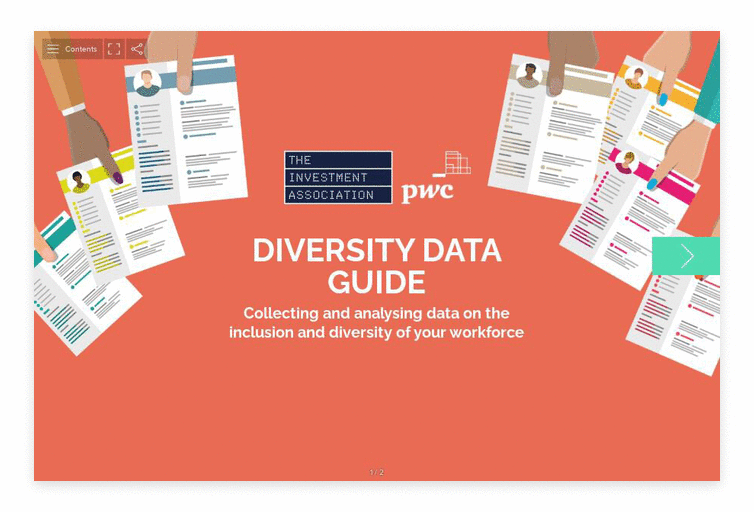 |
|
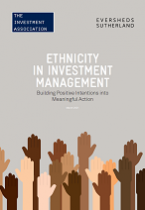
Ethnicity in Investment Management
Building Positive Intentions into Meaningful Action
March 2021
March 2021
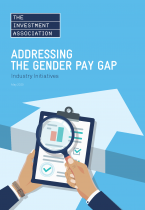
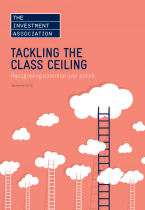
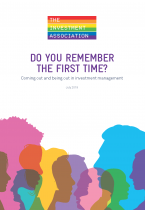
Do you remember the first time?
Coming out and being out in investment management
July 2019
July 2019
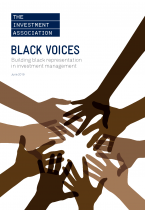


Underpinning other areas of work
Due to the impact and influence of culture on the way an organisation operates and interacts with consumers, it also underpins much of the wider work the IA does, including Corporate Governance.
FCA commentary and resources
Culture is at the heart of how the FCA authorise and supervise firms. The FCA defines culture as ‘the habitual behaviours and mindsets that characterise an organisation’
Recognising that it is not possible to assess mindsets and behaviours directly, they have identified four key drivers of behaviour which firms can identify and manage:
• Purpose
• Leadership
• Approach to rewarding and managing people
• Governance
FCA Resources
- Culture and governance page
- Leadership and management capabilities expert page
- Psychological safety expert page
- DP 21/2: Diversity and inclusion in the financial sector – working together to drive change
- Senior Managers & Certification Regime expert page
- Remuneration expert page
- Inside FCA Podcast: Interview with Jonathan Davidson and Jayne-Anne Gadhia on Culture and SM&CR
- The Transforming Culture Conference summary
- DP18/2: Transforming culture in financial services





